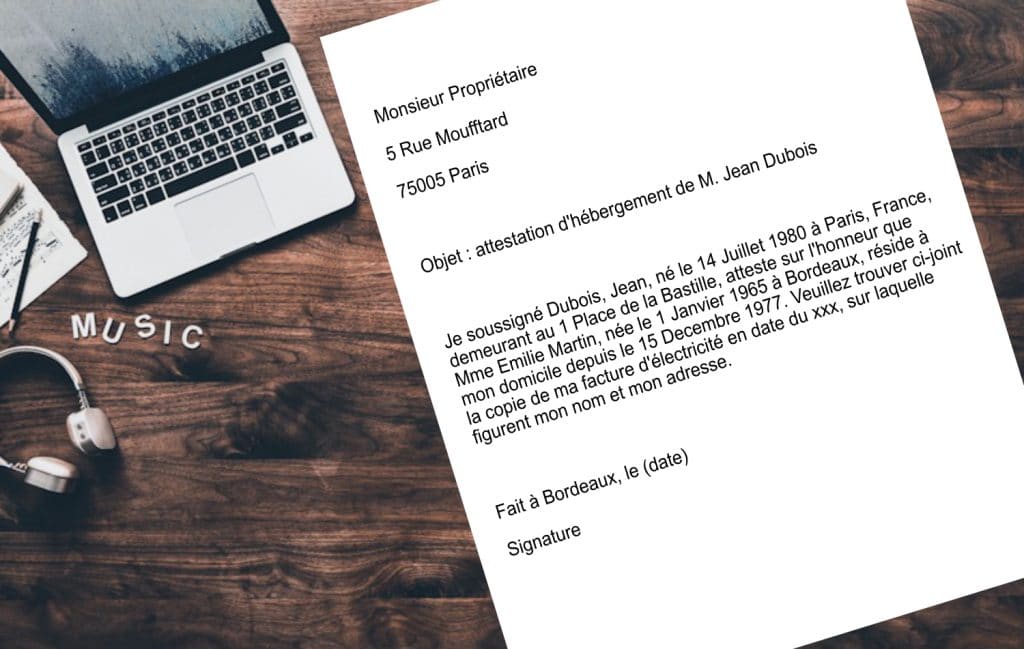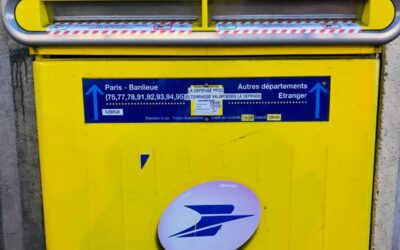So you have just moved all your stuff to France, dreaming of la vie à la française, croissants in the morning, strolling along the Seine for lunch, and delicious little apéros in the evening.
Living as a permanent resident in France can be a thrilling and exciting experience. But then there is the paperwork. French bureaucracy is known for being extensive and complicated. And there are quite a few quirks in the process.
So as you start earnestly looking for a lovely Parisian pied-à-terre there are some practicalities to keep in mind. Beyond the visa requirements depending on the country you are coming from, there is the famous logistical runaround.
All of us who have already made the move (including me) have fallen into this trap. So let’s find out a few facts about becoming a resident in France, shall we?
1. Proving you have the right to open a bank account
Once you get to France and start looking for a permanent long-term home, you will find that renting a property in France is not for the faint-hearted. First step, getting that bank account.
You put on your game face, mentally rehearse your french, and head over to the nearest local bank. The agent turns to you and asks:
“Bonjour. Thank you for your passport, we require a Justificatif de Domicile (proof of residence) as well. Do you have one?”
“Bah, I just moved here” you reply, “I’m living in a hotel, I don’t have a fixed residence.”
“Well, no bank account for you Madame”, the bank agent replies. “Au Revoir.”
Welcome to the world of the Justificatif de Domicile. You cannot open a bank account if you do not have proof of residence, and you cannot rent an apartment if you do not a local bank account. The chicken and egg conundrum indeed.
☞ READ MORE: Where to live with a family: Paris or the Suburbs?
2. Showing Proof of Residence (“Justificatif de Domicile”)
A Justificatif de Domicile is required regularly in France, even more often than other forms of ID. You will need it at a minimum for:
- your visa
- to open a bank account
- to get your driver’s license,
- to get a telephone (cell or landline)
- enter your kids into school, etc. etc.
It is one of the most valuable documents in your arsenal of “French Documents”.
3. Getting an “Attestation d’hébergement”
So how do you get this famous document, the “Justificatif de Domicile”? If you have just moved there, there is only one way to get it: get a French person to vouch for you. A French resident or your employer can write a letter of “attestation d’hébergement” to vouch for you.

(If you can read French, you will notice that everybody is required to give their birthdate and place of birth in the above letter!)
After you have your first Justificatif de Domicile, you can then work on setting up a regular Justificatif that you can use in the months and years to come. Each justificatif is usually valid for 3 only months, so you will need a proper system to get one on an ongoing basis.
4. Renting a property in France
Once you do get your first “attestation d’hébergement, you will be able to open a bank account, and then start applying towards renting an apartment.
The French take their language seriously, so while many real estate agents say they speak French, be prepared to be armed with patience. If you are not fluent in French, you may need to take language classes to improve your skills.
You will also need to gather several documents such as:
- Passports
- Residency or Visa
- Marriage certificate
- Current proof of residence
- Letter of employment in France
- Payslips for the past 3 months
- Personal income tax returns for 2-3 years
- Savings, investments, cash accounts in France
- Prior rental payment slips
- Guarantor attestation (explained below)
- French bank account IBAN
- (Optional) Current rental insurance attestation
It is best to start collecting the necessary documents as soon as possible when you plan to make the move. You can read more tips about renting an apartment in Paris and France here.
5. Other documents that work as proof of residence.
Once you do have a permanent home, there are still recurring occasions when you will need to show your justificatif de domicile. There following types of bills can also work as proof of residence:
- Electricity bill
- Gas bill
- Telephone landline bill
- Rental contract and monthly rental bill
The EDF Electricity bill is the most commonly used document. EDF got so tired of people asking for a letter, that they put one on their website that can be downloaded instantly. (Where there is technology, there is a way!). EDF also has an English-speaking phone number service, should you need further assistance.
Note that it is important to store your Justificatif safely, and not share it with strangers. A Justificatif can be stolen and used to forge your identity.
But once you do get it, remember to savor that piece of paper: it proves that you have officially become a French resident!

If you enjoyed that article, you may enjoy reading more about living in Paris and the eye-popping cost of living in Paris, compared to the rest of France). A bientôt!




